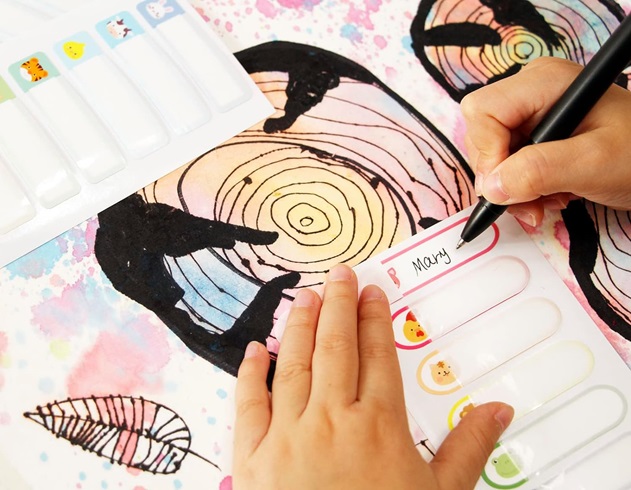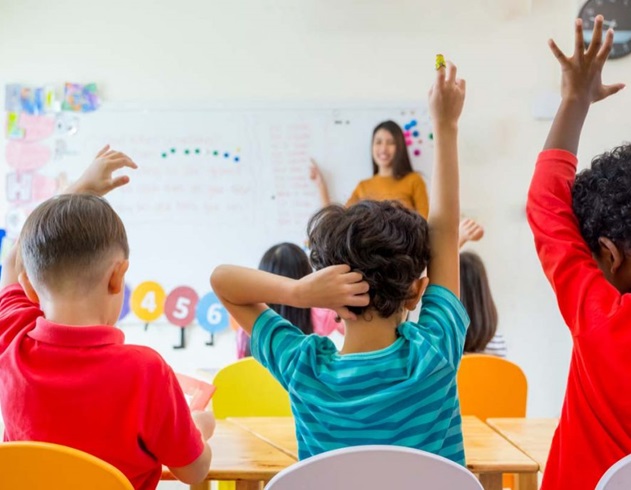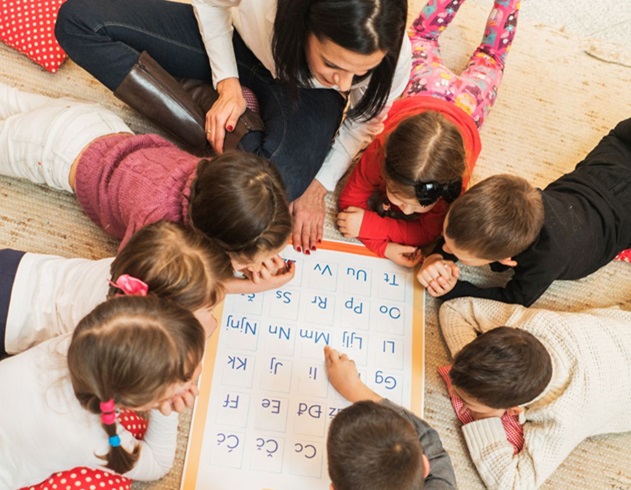Social Skills 101: Ideal Tips for Nurturing Your Child’s Social Development
It’s no secret that establishing new connections and building friendships can be quite a daunting task. For children, it can sometimes seem like an incredibly difficult task. Assisting in enhancing your child’s social skills can greatly simplify the process. Encouraging and working with your little one to understand the importance of socialising can help support their development of social skills.
If you ever find yourself unsure of where to start, or seek fresh strategies to support your children, I have compiled a list of techniques to enhance their social skills. Feel free to explore these suggestions at your convenience.
Teach Them How to Write, Spell and Pronounce Their Name

Spending quality time with your children also includes learning new things, such as correctly spelling and pronouncing their name, so they can introduce themselves with more confidence around other children. And what you might find helpful in this task is getting them handy waterproof name labels so they can have fun writing and reading their names with their siblings and other children.
In addition, name labels are super useful for teaching your kid new words and help them find and organise things. A name label help children identify their belongings, reducing the chances of items being lost or mixed up, especially in school settings. It’s also a tool that promotes organisation by clearly marking items like school supplies, clothing, and lunch boxes, making it easier for kids to keep track of their belongings.
With their belongings clearly labeled, children can develop a sense of independence by taking responsibility for their items and keeping track of them on their own. In case of emergencies, having a child’s name clearly labeled on their belongings with a name tag can help caregivers and authorities quickly identify the owner.
Moreover, the waterproof name labels can be customised with a child’s name, favourite colours, or designs, adding a personal touch and making items more appealing to kids. Overall, waterproof labels offer practicality, safety, and a sense of ownership for children and their caregivers.
Encourage Confidence With Eye Contact
Implementing this advice can greatly enhance your child’s social skills. Eye contact may seem like a basic concept, but it is a crucial skill to possess. It demonstrates our active participation in the conversation and our genuine interest in the social setting. When engaging in conversation, it’s important to teach your children the value of maintaining eye contact and speaking directly to others. It will boost their confidence and ensure that they feel valued, all while enhancing their listening abilities.
Practise Asking Questions and Giving Answers

Asking questions is an excellent method for acquiring knowledge. It is important to foster a sense of curiosity in your child, encouraging them to ask questions to both yourself and others. Encourage them to reach out to their relatives and friends via phone for a Q and A session.
Engaging in meaningful conversations and inquiring about others’ perspectives can broaden a child’s horizons and foster meaningful connections. Consider incorporating a combination of open-ended questions to encourage dialogue, along with straightforward yes/no responses.
Help Them Understand Their Emotions
Having a deep understanding of our emotions can be incredibly empowering and can greatly enhance your child’s social skills. As parents, we play multiple important roles in the lives of our children. We are their role models, teachers, coaches, and leaders. Teaching our children is a powerful way to help them understand the distinction between positive and negative emotions.
A good starting point is not letting your emotions clash. Remain composed while addressing anything wrong, and effectively articulate your emotions through verbal communication. And then, continue to express your feelings in various situations. For example, it’s important to understand that tears can be shed not only in moments of sadness, but also in moments of joy.
Exercise Role Playing
Children enjoy playing, so why not incorporate some social skill practice into their playtime? Using empathy tasks, engaging in interviewing games, and regularly asking individuals “How does it make you feel?” are all straightforward yet powerful methods for imparting social skills.
Engaging in empathy tasks, such as interviewing your child while pretending they are someone famous, can be a valuable method for helping your child understand different perspectives. Children can enhance their social skills through play by incorporating dress ups, toys, or even enacting a tea party in their ideal kids’ room made specially for their freedom of learning and exploration. There is always something new to discover when you dress up as a princess, a pirate, or a clown!
Remember That Every Child Is Different

Each child has their own unique way of socialising. A child who tends to be more introverted may find themselves becoming tired more quickly in busy and loud social scenes, while a child who tends to be more extraverted may thrive in those situations but may not enjoy quieter or more intimate spaces.
Allow your child to explore social situations at their own pace and in their own time, without pressuring them into uncomfortable scenarios. Starting with small social interactions is crucial, as it allows us to gradually build our communication skills.
Stay Consistent With the Process
Developing strong social skills, such as negotiation, conflict resolution, assertiveness, non-verbal communication, and public speaking will prove invaluable as your child grows older. Therefore, it is crucial to encourage and practice these skills from a young age.
Encourage your child to share stories and confidently speak in front of groups of relatives and friends. Help them develop effective body language to enhance their communication skills. Encourage negotiation by involving them in decision-making processes, such as considering buying a treat or toy, and encourage them to articulate their perspective. Practising these skills as a child can greatly benefit individuals as they grow older and enter the workplace.
Set a Positive Example
Being a good social role model is often overlooked and underestimated, but it is crucial. To enhance your child’s social skills, it can be as easy as demonstrating responsibility, active listening, modelling effective communication, and displaying respect.
When communicating with others, it’s important to express your emotions clearly, maintain eye contact, take responsibility for any mistakes, and show empathy towards their feelings. These are some effective ways to become an exceptional role model.



